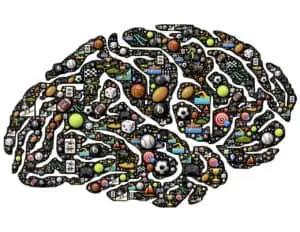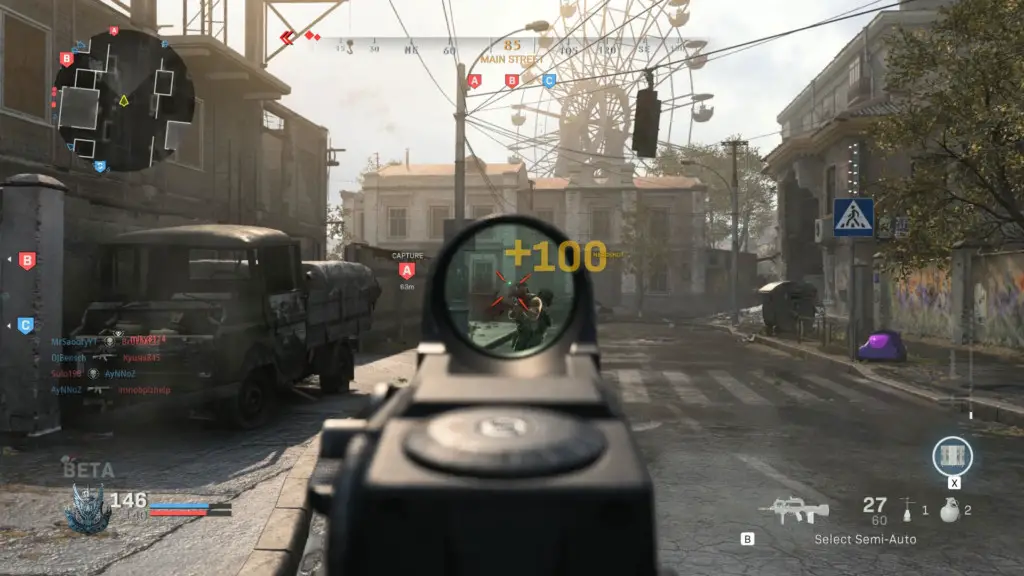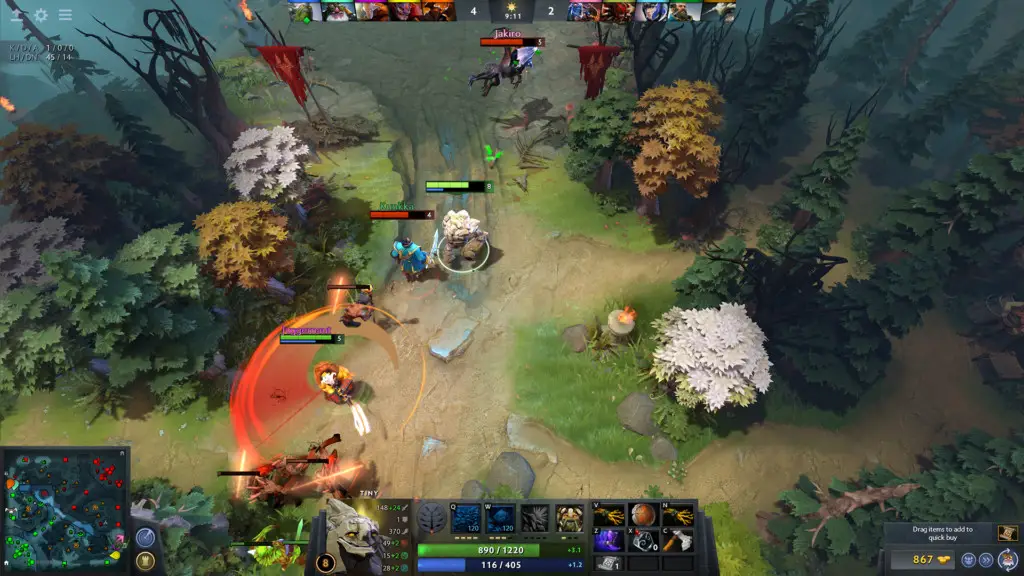Video games are deemed unbeneficial by many. It is often perceived as a distraction – especially by most adults – but researches have stated otherwise. Institutions such as the University of California, Irvine (UCI) have conducted studies to determine how video games affect the functionality of a person’s brain, and if it improves one’s memory or not.
The researches that were conducted have all concurred with one another and concluded that yes, video games do improve memory. It can range from the simplest brain games, which include puzzles and riddle-solving to strategic, combat, and 3D games. Playing video games on a daily basis can help enhance your memory along with your decision making and problem-solving skills.
There were multiple experiments done to determine how video games positively affect one’s well-being. It has been found out that creating your own world in Minecraft can expand your spatial reasoning skills; playing Super Mario 64 on Nintendo XXL can increase your memory formation. Sports games like FIFA will have you thinking of strategies to utilize to win against your opponent.
I have a lot more information to share with you about how specifically these games could affect your brain – in a good way, that is, and get rid of the rather negative stereotypes circulating around it.
How Do Video Games Affect Our Brain?

In a separate study, it has been discovered that an enriched environment highly affected the hippocampus. The hippocampus is found in the temporal lobe of our brain and is the one responsible for learning and memory. After exposing rodents to an “enriched environment”, the animals’ learning and memorization proficiency have remarkably increased. With this in mind, researchers from the University of California, Irvine hypothesized that video games could also serve as environmental enrichment for humans and can affect their hippocampus as well.
This led to a series of experiments, the first one having to compare gamers from non-gamers. What the researchers of UCI first did was learn about the gamers’ gaming habits, from the games they played to the amount of time they usually consume when playing. They then let these gamers take an enumeration test and a quiz that consisted of a mnemonic similarity test (MST), which makes the respondents differentiate the old pictures to the slightly altered new ones. The MST generates a high level of memory intervention.
In the first experiment, the group of gamers was composed of fifteen (15) males and twenty-four (24) females, resulting to thirty-nine (39) individuals. The other group – which was made up of non-gamers – had twenty-nine (29) respondents; eight (8) of them being male and the other twenty-one (21) being female. This group of non-gamers was also given the same enumeration and mnemonic similarity test before comparing its results to the gamers’. Moreover, the researchers also had these results compared to the professional gamers’ (who participated in the 2015 Winter Game Fest) to discern the possibility of a gamer’s skill being a variable in his or her increased learning and memorization proficiency.
The results then showed that the gamers were really at an advantage and had better learning and memorization aptitude than those who did not play video games. The professional gamers did not, in any way, show higher results than those who preferred playing video games for fun. The difference was rather seen in the games that they choose to play (not their skills). Those who played 2D games had a strikingly close score in comparison to the non-gamers.
Because of this observation, the researchers decided to divide their respondents into three groups:
- the first group will not play any video games before answering another test
- the second group will be playing only a 2D game – which is Angry Birds
- the third group will be allowed to play Super Mario 3D only
The researchers have hypothesized that the third group will show increased learning and memorization proficiency.
Both of the two groups were given a schedule of testing. In the succeeding two weeks, these players were given thirty minutes each day to play their assigned game before proceeding to another set of tests, followed by two weeks of no playing, and then succeeded by the final testing. The results then showed that the researchers’ hypothesis was correct – 3D games did have a higher impact on hippocampal-related memory, with an increase of 12 percent.
The lead researcher of the University of California, Irvine, has stated that this was because the 3D games contained features that the 2D games did not have. The 3D video games had a lot more spatial information in it to explore. He also added that the 3D games were “much more complex, with a lot more information to learn.” Unlike brain games which are designed to train one’s mind straightforwardly, video games aim to entertain its players with its characters and adventure, but still managed to have a positive effect on a player’s brain.
…Either way, we know this kind of learning and memory not only stimulates but requires the hippocampus.
The next step that the researchers of UCI are planning to take is to discover whether an enriched environment is able to reverse the hippocampal-dependent cognitive deficiencies common to people who are of older age. This will be done either through 3D games or real-world exploration experiences.
The researchers are taking into consideration using the video game approach to help improve the functionality of the hippocampus. An active, healthy, and engaging lifestyle is often recommended to help restrain cognitive aging (such as memory loss, which is common to the elderly). With the new discovery, though, the researchers see an angle wherein video games may also be an alternative route.
How Does Our Mind Work While Playing Video Games?
Playing games isn’t just pressing keys. It involves a lot of stimuli. Once I play a video game, I get immersed in it – let my mind start strategizing while letting my fingers react and move to press the keyboard at the same time. Playing video games also require the brain to memorize; starting from the simple mechanics up to techniques that can be useful in the future.
First-Person Shooter Video Games

If I, for example, play a game such as Call of Duty, I know myself that I don’t just let my fingers ram on the keyboard. There’s a lot much more going on behind that. I have to mentally take note of – and remember – the position of my enemy, think and strategize plans that could assist me in winning and simultaneously perform all of those under pressure. A game like COD can help nourish my spatial navigation, reasoning, memory, and perception. Rules of Survival (ROS) and PlayerUnknown’s Battlegrounds (PUBG) are also other first-person shooter video games.
Action/Adventure Video Games

I’ve played Minecraft, you’ve probably played Minecraft – almost everyone has already played Minecraft. According to Eric Klopfer, a professor and the director of the Massachusetts Institute of Technology’s Scheller Teacher Education program, this first-person ‘sandbox game’ can expand a child’s spatial reasoning skills, construction skills, and understanding of planning. He also added that in numerous ways, Minecraft is like a digital version of lego.
Strategic Video Games

Playing Starcraft involves a lot of thinking, strategizing, and coming up with tactics to defeat the enemy while keeping my limited resources and logistics in check. Something might occur and attack out of nowhere, and my mind has to be quick in the scheming of ways to handle the situation. Strategy games such as Defense of the Ancients (DOTA) make me perform quick analysis and fast decisions, helping me improve my memory and reasoning skills at the same time.
Are There Other Benefits That Come With Playing Video Games?
Of course, there are! Stimulating the mind’s hippocampus is not the end to a list of other cognitive skills that can be improved with the help of video games, such as:
- Enhance problem-solving and decision-making skills
- Improves multitasking skills
- Enhances attention and concentration
- Improves coordination
- Enhances social skills
- Improves eyesight
While playing a game, I don’t just randomly press keys or make decisions – there are rules to follow and adhere to. I need to make sure that the actions I press onto my controls will not violate these rules; that alone can improve my problem solving skills while also improving my decision-making skills.
I check my stats while searching for weapons to use, thinking what may benefit me the most at my current game situation – while doing those, I am already improving my multitasking skills. It can also enhance my attention and concentration because while going through all of those, the goal that I have to achieve is still well-planted in my head.
When I choose to play an online game instead, having to communicate with my co-players is inevitable. I must admit, though, that this does help me improve my social skills. I can hang out with some of my old peers through video gaming, or maybe meet new people and socialize with someone whose personality is different from mine.
Do Video Games Affect A Player’s Behavior?

Though video games do come in with a lot of benefits, it can still create a rather negative effect on a player’s behavior. That is if you’re not responsible for your gaming. When you practice playing video games responsibly, I assure you that video games can remain fun. You can even have your friends or relatives come over and bond through video games.
If you’re an adult who plays video games that involve violence, it doesn’t mean that you’ll immediately pick up the aggressiveness that comes with the video game. Children, though, aren’t so lucky. Kids of young age tend to associate themselves with characters they commonly see. It isn’t limited to video games alone – they can also be influenced by action movies or Netflix shows, or maybe by a YouTube clip online. The best way to avoid this is parental supervision.
If you think that you are also badly affected by video games, though, try reflecting upon your actions. If you’re noticing a slight change in your behavior (for example, self-isolation, increased aggression, difficulty to sleep, or irritability), there are ways to battle this negative effect caused by video games.
• Limit yourself to the amount of time you can play video games; make a schedule, also.
– You can limit yourself to playing video games only during MWFs, one hour per day.
• Practice completing your responsibilities first before playing video games.
– Make sure you do household chores before sitting in front of the screen.
• Keep your physical and mental health in check.
– Always eat your meals on time and get enough sleep as well.
– Observe sportsmanship and proper behavior when playing.
All of this, of course, must be done with self-discipline. Self-discipline is the key to continue living a physically and mentally healthy lifestyle.
Also check out this interesting youtube video I found by WIRED:
P.S. Would you like to know if listening to music can improve memory? Check out this article.
